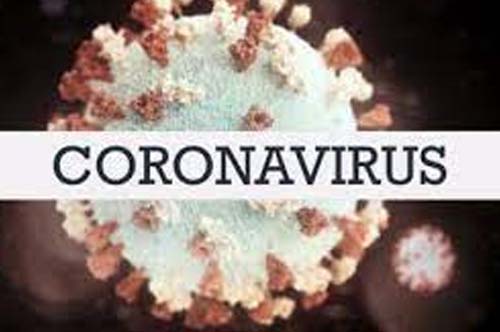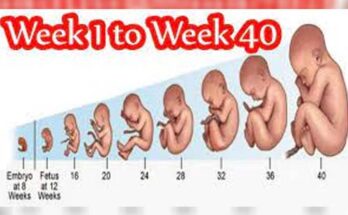The Coronavirus COVID-19 Official Data & Socking Numbers
According to the latest official data, today there are about a hundred sick. And among them, there already appeared those who caught the infection not on a trip abroad, but at home. The threat is so serious that has almost closed its borders, and the President announced the need to introduce a 14-day quarantine throughout the country for people at risk for Coronavirus.

Symptoms of Coronavirus
The main symptoms of COVID-19 coronavirus disease:
- Dry cough (unlike wet cough with a cold or bronchitis);
- Stable high temperature unlike the flu, it does not always rise immediately
- At the beginning of the disease and rarely is above 39 degrees;
- A mild form of the disease is difficult to distinguish from a common cold;
- Severe breathing and shortness of breath indicate that pneumonia has begun to develop – the most dangerous companion of COVID-19.
At the same time, patients do not have such manifestations of influenza and SARS as a runny nose, headache, sore throat, pain in muscles and joints, heat attacks.
What The Danger Of COVID-19
When the first sick people appeared, they are still very careless, because no one is sick nearby. And some isolated cases are skeptical – well, what is a hundred patients for almost 150 million people! They started to panic!
However, the trouble is that the number of infected people is growing not on a linear, but on an exponential basis. For people far from the formulas, we explain: with linear growth, the number of patients would increase by the same number of people every day.
With exponential growth – by one and the same percentage. This is best demonstrated by the “Problem on grains on a chessboard”, which calculates how many grains there will be on a chessboard if you put twice as many grains on each next cell of the board than on the previous one, starting with one: as a result, you have to put 64 cells 18,446,744,073,709,551,615.
Of course, the number of patients does not increase so rapidly – but at some point, the situation necessarily gets out of control, and cases of infection begin to multiply at an awful rate.
Why is this happening?
The insidiousness of the coronavirus lies in the fact that it is asymptomatic in children and young people, or a trip to the usual seasonal cold or allergies. In addition, COVID-19 has a rather long incubation period – it is believed that two weeks pass from infection to the first signs of the disease, but some experts say that the period when a person is already contagious, but not yet sick, lasts much longer – up to 24 days. All this time, the carriers, without suspecting anything, go to schools, work, go to the cinema, drive vehicles – and infect others. Add to this the traditional habit of suffering a mild cold on your feet.
Why quarantine is the most effective way to prevent
In light of the above discussion, quarantine is the most effective way to prevent the spread of Coronavirus. As soon as it was introduced in Wuhan on January 23, the exponential increase in the number of cases immediately stopped and the spread of the virus began to decline sharply.
However, quarantine is not a panacea. It is impossible to sit in isolation indefinitely, therefore, as soon as the number of cases decreases to certain limits, quarantine is lifted. However, experts warn: after quarantine ends, the virus may return again. At any time. And neither the hot summer nor the universal wearing of masks will prevent this.
There are only two ways to get rid of COVID-19: by inventing a vaccine and by developing collective immunity. If the vaccine fails, the virus will cease to be especially dangerous when about 40-60% of the population becomes ill and forms antibodies to COVID-19.
How They Deal With Quarantine?
All people who came from other countries where coronavirus cases were noted were obliged to stay at home for two weeks, in self-isolation mode. The same thing should be done to those of their relatives who live with them in the same apartment and have already managed to communicate with their relatives who have returned from abroad.
All these people need to call the emergency and helplines and check-in as being in quarantine. After that, they will draw up sick leave and bring it directly to the house. Further, all those sent to quarantine are required to measure the temperature twice a day and report daily to the clinic about their well-being. Of course, by phone.
To support quarantined people, the Ministry of Labor and the Social Insurance Fund intend to revise the procedure for paying sick leave and give people money in advance every five days to avoid situations in which quarantined people would be left without a livelihood.
Read More:- How To Wear A Mask Properly
With the self-isolation mode
Everything is somewhat foggy. If everything is clear with the concepts of “not attending work and school,” then the concept of “minimize visiting public places” can be interpreted very broadly. Is the garbage chute at the entrance a public place? A walk with a dog near the house? And finally, the main question: if the whole family is in quarantine – where to get food?
The city authorities tried to explain: they say, for contacts with the outside world you need to use the services of delivery services and the help of friends. But then what about the prohibition of contacts “with third parties”? After all, the same courier from Utkonos and Yandex-Food needs to give money, and not everyone has the opportunity to pay for delivery online.
Another strange recommendation
“In case of emergency, it is possible to go out in a busy time, always in a medical mask.” What does “sparse time” mean? It is clear that the coronavirus suspect should not be stomped into the store during peak hours. But if there are no convenience stores nearby, then in poorly populated times there is simply nowhere to buy products.
We warn everyone who is now skeptical about a grunt: the policemen were obliged to monitor all people in quarantine by the cameras installed in the entrance and periodically come to their home to check compliance with the self-isolation regime. For his violation, a fine of up to a thousand is imposed, and for a repeated violation, they can be forcibly hospitalized in the infectious ward. Even for taking out the trash!
What to do to those who live with relatives and are afraid of infecting them?
It is best, of course, for relatives to leave for a while before you return home from abroad. If this is not possible, you need to follow basic hygiene rules: wear masks, use personal dishes and skin antiseptics, regularly ventilate the apartment, often carry out wet cleaning and wash your hands.
For those who are healthy
COVID-19 is transmitted by airborne droplets. At the same time, when coughing or sneezing, the virus, along with droplets of saliva, can settle on any dirty surface – the door handle, the railing of the escalator, and so on.
Safety rules for those who are still healthy and not in isolation are quite simple. If possible, go outside less often. Avoid crowded places. For walks, choose not city streets, but parks. Try not to get closer to other people closer than 1.5 meters. For a while, forget about handshakes, hugs and kisses when meeting and saying goodbye to friends and colleagues.
Do not touch your face with dirty hands. Upon arrival home – immediately remove street clothes, wash your face and hands with soap and water, and even better – take a shower. Use antiseptic hand gels more often. Rinse your nose more often and rinse your mouth with antiseptics – for example, miramistin. Do not eat or smoke outside. Use disposable scarves for coughing and sneezing.
The terminals for entering pin codes are considered one of the dirtiest places in the world – along with pistols at gas stations. Touched – immediately treat your hands with an antiseptic.
Among your things, the dirtiest and dangerous are paper money, plastic cards, and smartphones.
According to WHO, coronavirus lives on paper bills for 3-4 days, and plastic and smartphones for up to 9 days. Therefore, refuse cash, and regularly wipe the card and smartphone with disinfecting wipes – once an hour or two and upon returning home.
Separately, it should be said about the mask.
They are not for your protection. They are for protection against you if you become ill. The mask retains most of the viruses that a sick person releases during breathing, and thus sick people become less dangerous to others. And since during periods of epidemics it is impossible to determine who is sick and who is not yet, it is recommended that everyone wear masks.
- The mask should fit the face as tightly as possible and cover the mouth, nose, and chin.
- Do not touch the mask while it is on you.
- Change it as soon as it becomes wet from your breath.
- When removing the mask, hold it only by its ties.
- Never use a mask twice.
- After changing the mask, wash your hands with soap.
And the last tip
Do not drink antiviral drugs without a doctor’s prescription. For the prevention of coronavirus, they are ineffective drugs, and in addition, firstly, they give you a false sense of security, and secondly, if you do get sick, they can complicate the diagnosis and treatment.
It doesn’t matter if you returned from Italy or stayed at home all winter without a break. It doesn’t matter how often you leave your home. In case of symptoms of a cold (any) – you must definitely call a doctor at home, if necessary, having previously reported that you (or your cohabiting relative) have recently visited a dangerous country.
FOR THE ELDERLY
Children and adolescents are less likely to be affected by COVID-19. Until the age of 15, they are very rarely ill, and they tolerate the disease very easily. The older the worse. The risk of death from coronavirus appears from about forty years old, and 80% of deaths occur in those over 65 years old.
There is also an increased risk for those who are seriously ill: cancer patients, diabetics, people with diseases of the cardiovascular system, respiratory tract, and so on. These people are in the main risk group, and they need to be protected especially carefully. In no case do not send children to quarantine grandmothers!
In general, try to isolate your old people as much as possible: bring them food and medicine, go for them to Sberkasy and the IFC, and if they really need to go somewhere, insist on a mask and a taxi!
If you live separately from your parents
Do not sit at their place. They brought the products, gave them away, putting on a mask – and home. You can chat on the phone. If you live with elderly relatives, you will have to walk around the house in a mask and observe the maximum requirements for room hygiene. Lonely elderly people are encouraged to contact the volunteer headquarters created on the basis of the All-Popular Front – they promised to help the elderly with the delivery of food and medicine, as well as with walking animals and garbage in those regions where cases of coronavirus were recorded. Starting March 23, ONF will launch call centers in these 12 regions, which will receive calls from them who need help.
And, again, even if you do not leave your house at all – at the slightest symptom of a cold, call a doctor. For the elderly, this can be a matter of life and death.
WHEN EVERYTHING ENDS?
Nobody gives accurate forecasts – but if you focus on China, then the period from the appearance of the first cases to a sharp decrease in the number of new cases is about 2.5-3 months.


